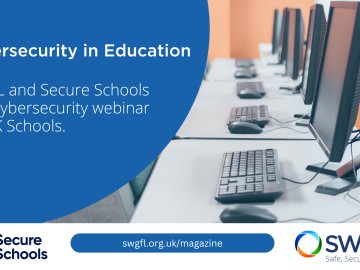Managing a young person’s device can be tough, especially when so many children are likely to have their own smartphones, tablets etc, from a young age. It may surprise us just how comfortable young people can be when using devices along with how easy they find accessing content on the internet, sometimes even better than ourselves! With so much content available to young people, it can cause concern amongst parents around what is appropriate for their age group along with concerns around screen time and privacy. Monitoring apps have been built to try and support parents with managing children’s devices on a technical level. They usually aim to set boundaries within technology and look to give more control towards the parents. In this blog we look at what these apps can offer along with some considerations around using apps such as these.
What Features Do They Offer?
Monitoring apps usually provide a variety of features to allow parents to have more control over their children’s devices. They often actively allow parents to keep an eye on internet activity and provide options to manage online behaviour accordingly. Some of the features may include:
- Managing Screen Time – Parents can see how long their children spend on specific apps. They may also be able to set daily screen time limits and provide a set time when apps are switched off for the night.
- Approving Apps –Allowing parents to approve or disapprove of apps before they are downloaded. Apps may also be blocked or hidden from view if not appropriate.
- Recommending Apps – Promoting apps that may prioritise education or are designed to be used by a specific age group.
- Locking Devices – Giving parents remote access to switch off devices as and when they deem necessary.
- Tracking – Parents are able to keep an eye on where their children are using tracking features. It usually pinpoints locations on a map and updates on a regular basis.
Considerations
While it is encouraging to see apps working towards keeping children safe online, it is important to note that apps such as these are not a guaranteed method of keeping children away from harmful online content. Parents may want to use these types of apps if they are concerned about a young child using a device in the early stages of their development or if they have particular vulnerabilities, however it is important for parents to open a wider discussion in person if they want to address the issue better.
Communicating about online safety and the responsible use of devices openly can allow young people to navigate the internet with a respectable degree of privacy. It can also allow them to feel confident enough to come forward if an issue arises. Putting up consistent barriers and heavy restrictions through their development may lead to feeling overwhelmed and inexperienced when they reach an older age. The internet is used in so many areas of life; they need to keep up as much as we do.
Monitoring apps offer a lot of options for parents but it is important to take control of the situation offline as well. Opening a discussion around safer internet use can help with children identifying where risks are whilst encouraging understanding of appropriate behaviour when they navigate freely. If you want to learn more about starting a discussion, you can read the Childnet’s Family Agreement resource.
To learn more about monitoring apps you can read a breakdown from Internet Matters.
To find out about various parental controls and security setting across the most popular social media platforms, you can download our checklists.






